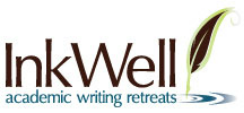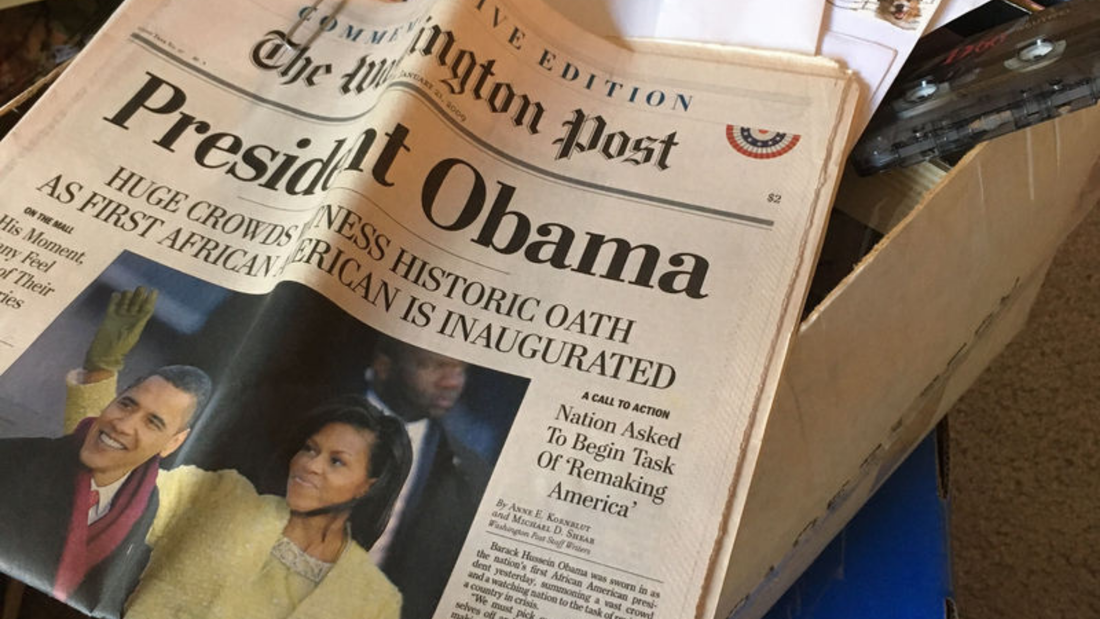|
Photo by Michelle Boyd When I moved from Chicago to Portland three years ago, I was ruthless about throwing stuff out. We were reducing our living space by half. I was leaving my comfy university job and starting InkWell. And I was ready to leave the person I’d been behind and start all over. All except two 11x17 cardboard boxes, filled with—honestly—I don’t know what. Every time I tried to go through them, all I could see were decisions I wasn’t ready to make. So I taped up the boxes and threw them in the moving van, justifying it by telling myself I couldn’t yet think clearly about what I wanted to keep. When we arrived in Portland, right before the holidays, I stuck them in a closet and promised myself I’d sort through them in the New Year. It’s nearly three years later, and of course, those two boxes are still tucked away in the closet. I came upon them last week during another minimizing spree, determined to create more breathing room in my storage space and my life. This kind of reflect-and-eject thing is pretty normal for me at this time of year. When the semester winds down and the winter break approaches, I tend to wander around our apartment, giving half my attention to whatever I’m doing, while the other half ruminates on how my year went. And I’m not the only one. The Year in Review is everywhere you look this time of year, whether it’s about writing productivity, who died, or what 45 did during his first year in office. Instead of just barreling through the season, we have this rare opportunity to slow down, take our boxes out of the closet, and sift through their contents to decide what we want to keep, and what we need to get rid of. The problem for scholars though, is that the way we do the Year in Review can be ineffective, if not downright demoralizing. That’s because the typical academic version begins and ends with a list of professional accomplishments—this many chapters completed, manuscripts submitted, defenses overseen, talks given, etc. This approach turns the Year in Review into a calculation rather than a reflection. We tote up how much we got done this year and use that to try to figure out what to put on next year’s to do list. But if we focus on how much we got done, our Year in Review devolves into either a pat on the back, or a proving ground. And when you’re trying to discern what’s important in life, you can’t do it if you’re trying to show someone—your competitors, your admirers, yourself—how capable and accomplished you are. At its core, the Year in Review is a private, reflective moment. Its purpose is to help you recognize what path you’ve been walking for the last 12 months, and whether or not you need to change course. That kind of understanding cannot be revealed through unmitigated self-celebration. Nor is it fostered by an accounting of your professional productivity. * * * If you’re looking for a way to make your Year in Review more helpful, consider grounding it in questions about the significance of your actions rather than the magnitude of your accomplishments. Using four short but meaty questions can help you do so.
* * * To illustrate the power of these questions, here’s an example from my own Year in Review. A partial list of the things that stand out in my mind when I think about 2017 would look like this:
This tells you a little bit about what kept me busy this past year. Which means it doesn’t tell you anything at all. Contrast that list to my answers, below, to questions 2-4, which are lightly edited for clarity and highly condensed (you’re welcome—no one should have to read my reflective writing mind vomit).
I offer this example to illustrate a few things. First, your Year-in-Review doesn’t have to be well written or exhaustive to be valuable. The questions themselves so radically change the focus of your ruminations that even one or two lines of poorly composed text can reveal a fairly significant set of insights. This exercise can help you even if you only have 15 minutes here and there to think things through. Second, this example shows that it’s worth it to write down the answers to these questions, instead of just pondering them in your head. I knew before I started writing that I was happy with the outcomes of facing my fears. What I didn’t realize was that I was still defining myself as someone with a public speaking phobia—or that I was ready to let go of that identity, even though it still takes enormous effort for me to speak in public. This distinction—between recognizing a challenge and clinging to an identity—didn’t become clear to me until I wrote down these thoughts. You’re a writer—I don’t have to tell you how such nuggets often reveal themselves when we’re on the page instead of in our heads. Finally, I offer my own example to illustrate the limits on what can be gleaned from our accomplishments. It’s true that they’re valuable and worth being proud of—I wouldn’t even bother trying to deny how geeked I am about what I’ve gotten done this year. But our accomplishments can only tell us so much about our worth—so they are only part of the prize. It’s the questions we ask about those accomplishments that really make a difference. These questions are the ones the two boxes in my closet keep asking me. They’re the questions that each year asks of you. And your writing. And the life that your writing is just a part of. There’s a power that comes from questioning. That’s something every scholar and artist and activist knows in their bones, whether you’ve put it that way or not. It’s what brought you to grad school. It’s what keeps you in the academy, despite the doubts and the demands. Take a few moments this month to ask yourself some version of these questions. Then—as my gramma used to say—hide and watch, honey. And see what power they bring you next year. Want the monthly InkWell blog delivered straight to your inbox? Subscribe to Inkling, a bite-sized, monthly newsletter filled with ideas, inspiration, and information for academic writers.
Spela
12/19/2017 10:18:56 am
Thank you so much for this, Michelle! I'm going to do this together with my husband - we used to do end-year reflections before we had kids and I think this is such a wonderful structure for that, and seems doable even in the pre-holiday craziness!!
Michelle
12/19/2017 11:04:58 am
Spela, I LOVE that idea! I wonder if I can get my husband to do the same? :)
Michelle
12/19/2017 11:06:09 am
Afi, you made my day! I love it when I write something that non-eggheads can use.
Arpi
12/19/2017 10:44:04 am
I love you, Michelle Boyd.
Michelle
12/19/2017 11:06:50 am
Always, always you, Arpi Miller.
Cheryl
12/20/2017 12:09:19 am
Thank you!
Michelle
12/20/2017 01:26:23 pm
So glad you enjoyed it Cheryl!
Carla Hunter
12/20/2017 12:03:48 pm
Thank you Michelle! I am planning to use the first 3 sentences of the last paragraph in some planned invited talks for undergraduates interested in graduate school, will be giving you full credit of course! Thank you for the inspiration!
Michelle
12/20/2017 01:27:37 pm
Carla, I love to be cited! :) Thanks for doing so. I hope they enjoy the talk!
Lorena
12/21/2017 04:14:12 pm
Love this approach to reflecting on the past year and thinking about how to approach the new year! Thanks for sharing this, Michelle!
Michelle
12/28/2017 11:14:17 am
So glad you found it helpful Lorena! Happy New Year :). Michelle. My Mr and I just did this exercise. Thank you so much. It was really interesting to me to see how our writing took on quite different forms - he uses writing to think (so his work was very cerebral)... whereas I have come to use my writing to feel (so my responses tended towards the poetic - it hasn't always been this way - I've spent a lot of time stuck in my own head). Either way we both found it incredibly valuable. It really did 'build a bridge' and I found it very affirming (for which I am grateful). Next steps for us are thinking about what new experiences we want to weave in to the things we're retaining from 2017.
Michelle
12/28/2017 11:16:00 am
Hayley I LOVE this! What a fantastic idea to do this with someone else, I can see how it really shows you things you wouldn't otherwise see. So glad you found it valuable, and enjoy bringing the good of 2017 into 2018.
Roxanne Donovan
12/28/2017 11:46:02 am
Michelle, Thanks for your invitation for more thoughtfulness in reviewing 2017 - I accept :) I waited to read your piece until I could fully savor it. So glad I did. I just love your writing. I ALWAYS learn something from it.
Michelle
12/29/2017 03:48:27 pm
Roxanne, it makes me so happy to here this, especially give how much I have learned from you!! So glad I could add a little something to your 2017.
Lisa Whittingham
12/20/2018 09:10:00 am
What an amazing post! Thanks for a great year of writing! I'm looking forward to more in 2019! Happy holidays! :)
Michelle
12/22/2018 10:56:22 am
Thanks so much Lisa and same to you! Have a lovely end to the year. Comments are closed.
|
|
© 2018 InkWell Academic Writing Retreats
|

